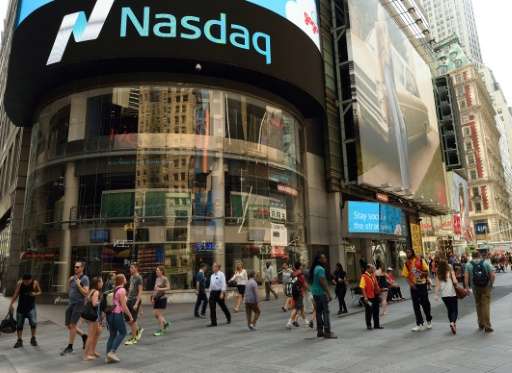Australian software firm Atlassian plans to list 22 million shares on the Nasdaq stock exchange priced at US$19-20 dollars under the ticker TEAM
An Australian start-up founded with credit card debt and a "Don't #@!% the customer" motto is set to list on the Nasdaq stock exchange in a rare example of the entrepreneurial spirit the government is trying to nurture.
Software firm Atlassian plans to list 22 million shares priced at US$19-20 dollars under the ticker TEAM as early as Thursday, it said in a filing to the United States Securities and Exchange Commission.
This is an increase on its original price range of US$16.50-18.50 and, if successful, will raise an estimated US$400 million and give the firm a market capitalisation of some US$4.1 billion.
"In terms of an IPO in the tech space this will be the largest (Australian) tech space listing we've ever had no matter what happens," IG markets analyst Evan Lucas told AFP.
"And it will be our first 'unicorn' listing which is also quite a special thing," he added, using Silicon Valley parlance for a tech start-up valued at more than a billion dollars in private funding.
Founded by Mike Cannon-Brookes and Scott Farquhar, both in their mid-30s, Atlassian built its success without a sales force because—they say—a good product, downloadable from the Internet, shouldn't need one.
"We make our products affordable and we transparently share our simple pricing online," the company said in its prospectus.
It now has more than 1,300 employees working in five countries and says it has 51,000 customers with clients including eBay, NASA and Netflix using its software tools.
"It is a company that has provided a technology opportunity to technology companies themselves all over the world and I think that's the more exciting thing about them," said Evans.
As a point of difference to many tech firms, not only is Atlassian not Silicon Valley-based, but it has been profitable for a decade despite increased competition.
The company's net income was US$10.8 million for the fiscal year ending June 30, 2013 and it followed this with profits of US$19.0 million and US$6.8 million in the next two years.
"In tech terms they are actually old—the fact they were formed in 2002 that actually makes them old," Evans said.
"And they've got history behind them and a history of earnings and stable contracts locked in for the products that they offer."
These products include JIRA software for project management, HipChat for messaging, and Confluence for document collaboration.
Evans said as a Sydney-based, London-domiciled, US-listed company, Atlassian would be truly global and the US listing would give it greater exposure to the capital it requires.
"The other thing, unfortunately, is that the US gets tech companies—we don't," Evans said, referring to Australia, which has traditionally built its economy on agriculture, resources and services.
'Great Australian hope'
Australian Prime Minister Malcolm Turnbull, a millionaire former merchant banker and tech entrepreneur, this week announced tax concessions and other measures to help grow similar start-ups and foster innovation.
Turnbull has admitted there is a need for a cultural change to better embrace risk and incentivise early stage investment in start-ups in Australia.
"There has been a lot of talk about Atlassian, 'the great Australian hope' of technology IPOs," said Derry Finkeldey, research director at Gartner in a blog earlier this month.
"And the fact that they have managed to grow to several hundred million in revenues and a customer base of 50,000 organisations without hiring a single sales person.
"And... they've been profitable for the last 10 years. That's pretty impressive."
Cannon-Brookes has previously defended any US listing, saying Atlassian was committed to improving Australia's tech sector.
"I think we need to lose a little bit of our parochialism about that (listing overseas), I don't understand at all why that's bad for Australia," he told The Australian newspaper in October.
"We are passionate and dedicated to improving the Australian industry, it's a huge priority for us as a company and we have to do that."
© 2015 AFP






















